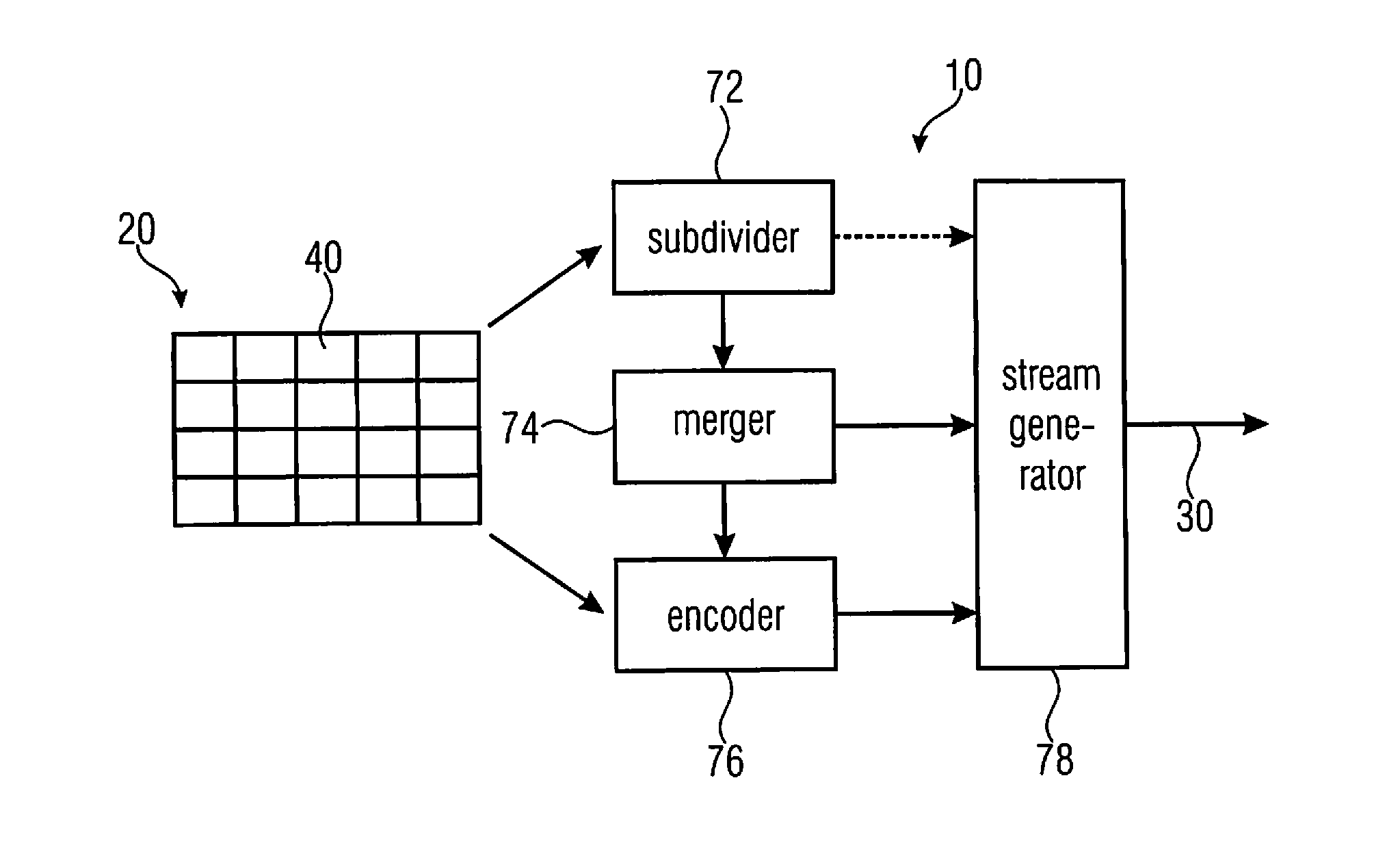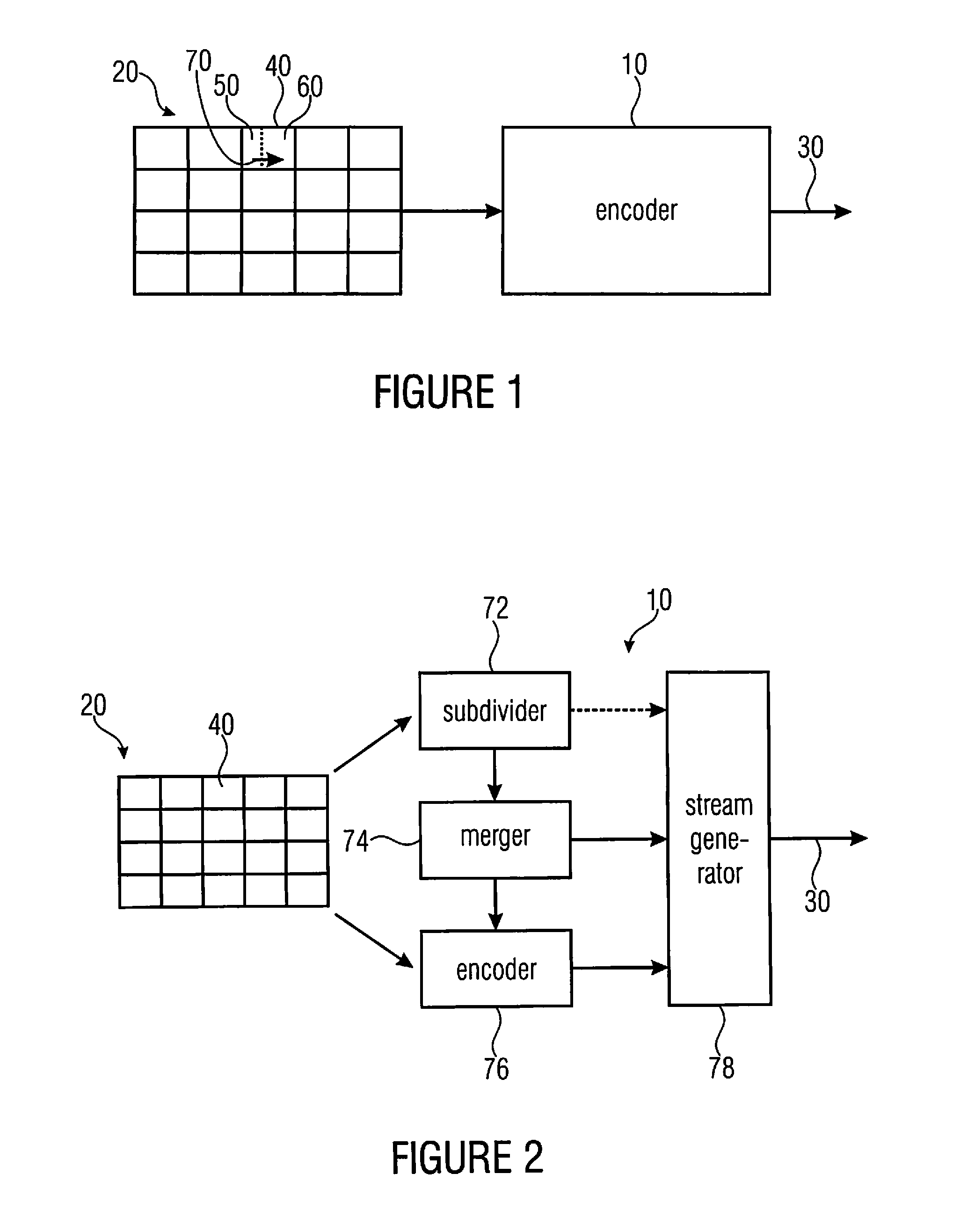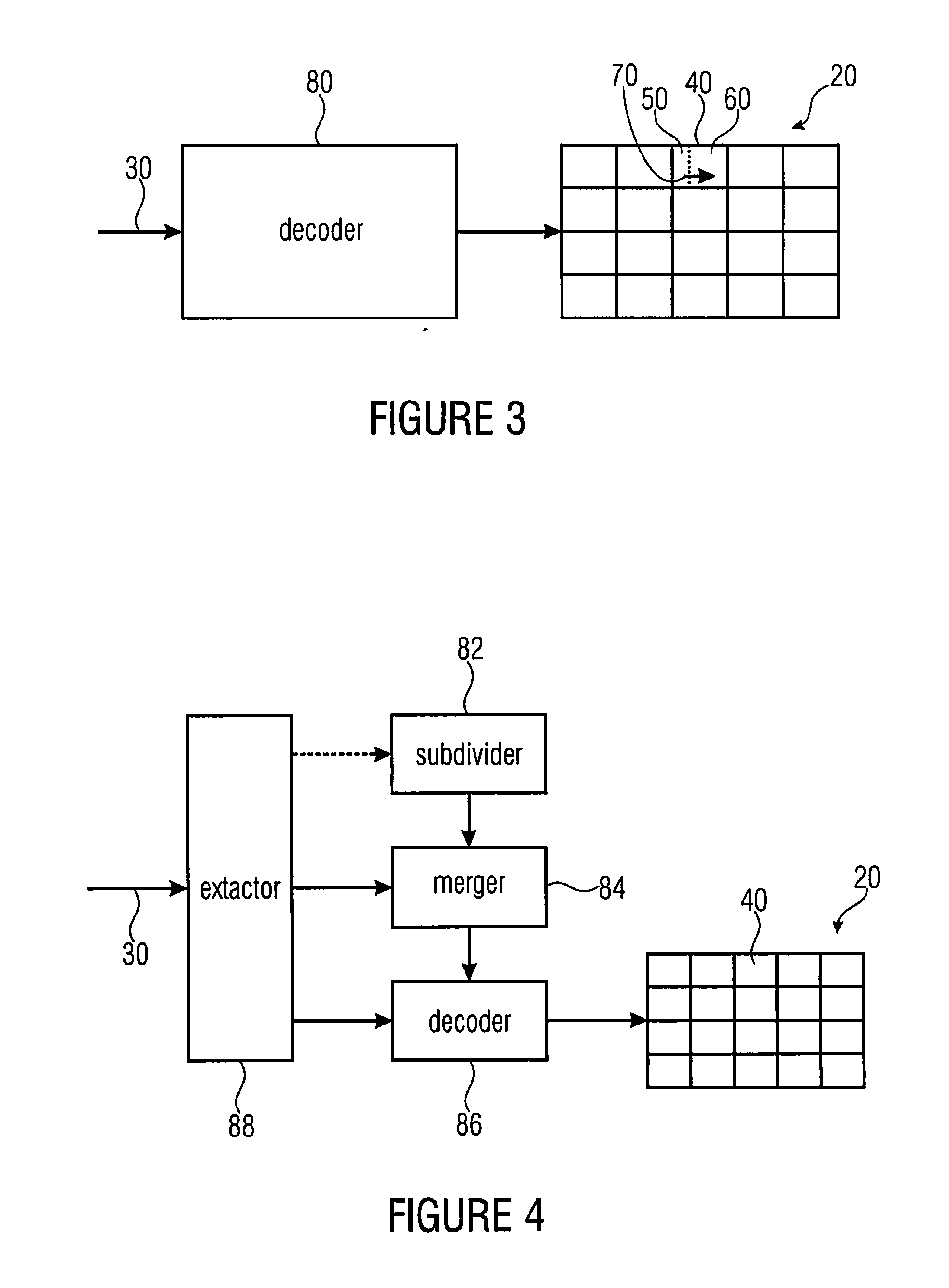Picture coding supporting block merging and skip mode
a block merging and skip mode technology, applied in the field of picture and/or video coding, can solve the problems of increasing the amount of bits required to encode the prediction residual, and the restriction of the freedom of subdividing a picture, so as to save bit rate and additional overhead
- Summary
- Abstract
- Description
- Claims
- Application Information
AI Technical Summary
Benefits of technology
Problems solved by technology
Method used
Image
Examples
Embodiment Construction
[0033]With respect to the following description, it is noted that whenever the same reference sign is used in connection with different figures, the explanations with regard to the respective element presented with respect to one of these figures shall equally apply to the other figures, provided that such transferring of explanations from one figure to the other does not conflict with the remaining description of this other figure.
[0034]FIG. 1 shows an apparatus 10 for encoding a picture 20 into a bitstream 30. Naturally, picture 20 could be part of a video, in which case the encoder 10 would be a video encoder.
[0035]The picture 20 is, although not explicitly shown in FIG. 1, represented as an array of samples. The sample array of picture 20 is partitioned into sample sets 40, which could be any set of samples such as sample sets covering non-overlapping single-connected areas of picture 20. For ease of understanding, the sample sets 40 are shown as, and are called in the following...
PUM
 Login to View More
Login to View More Abstract
Description
Claims
Application Information
 Login to View More
Login to View More - R&D
- Intellectual Property
- Life Sciences
- Materials
- Tech Scout
- Unparalleled Data Quality
- Higher Quality Content
- 60% Fewer Hallucinations
Browse by: Latest US Patents, China's latest patents, Technical Efficacy Thesaurus, Application Domain, Technology Topic, Popular Technical Reports.
© 2025 PatSnap. All rights reserved.Legal|Privacy policy|Modern Slavery Act Transparency Statement|Sitemap|About US| Contact US: help@patsnap.com



